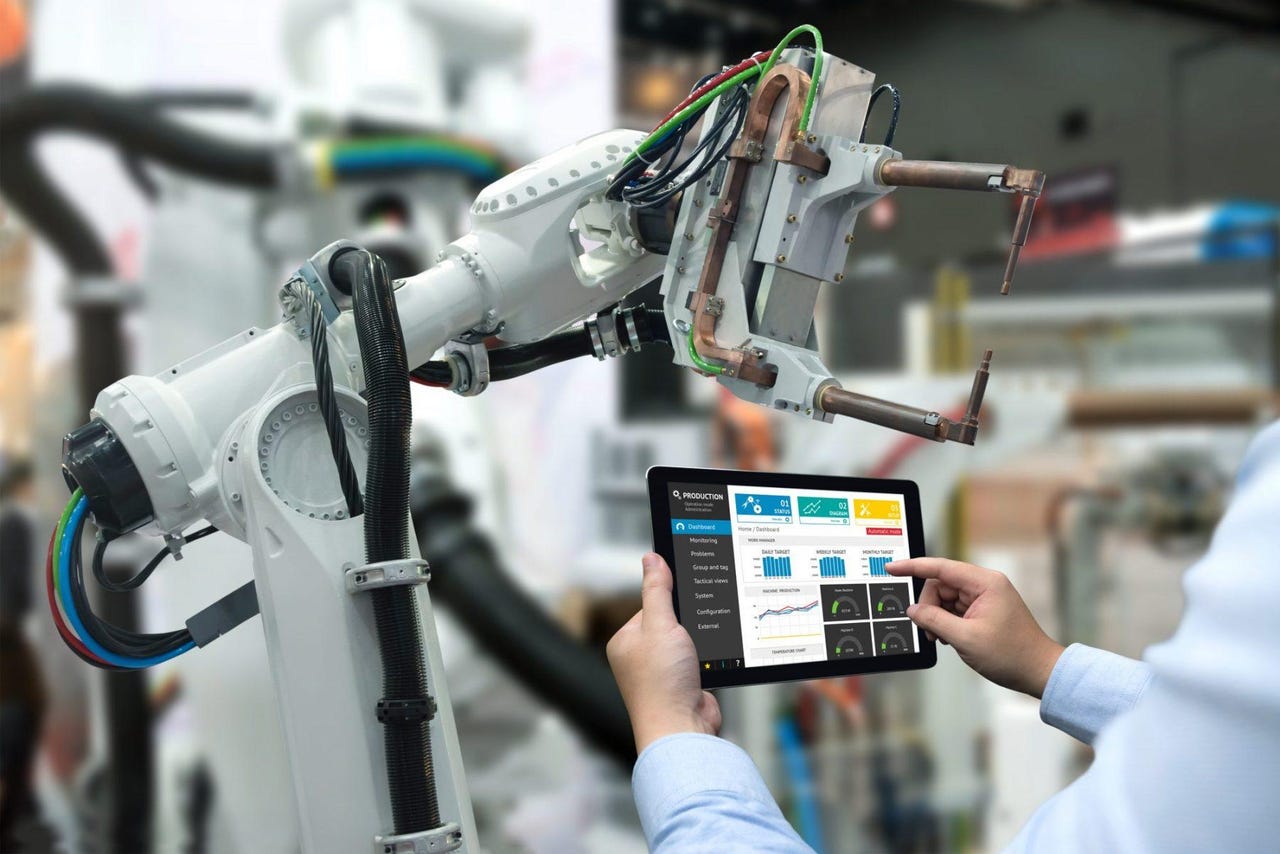AI as a job saver? Why Japan's auto industry is embracing Industry 4.0


The International Auto Show is underway in New York City today, and technology is in the spotlight. Much as the auto industry paved the way for industrial automation, carmakers have started to adopt artificial intelligence to speed up manufacturing and increase precision.
That's brought increased focus on human workers. Just as the auto industry is a bellwether for manufacturing tech, it's also a real world laboratory for the effects of new technologies on the labor force.
Flipping the usual script on artificial intelligence as a looming job killer, Japan, for one, is welcoming AI in manufacturing as a way to save an industry imperiled by a staggering labor crunch.
"Japan has seen eight consecutive years of population decline, which is expected to continue as many of its inhabitants are aging out of the workforce, Ran Poliakine, Co-founder of a new AI manufacturing consortium called Musashi AI, told me prior to the start of this year's Auto Show. "Researchers predict that by 2036 one in three people will be elderly. This paves the way for AI innovation by delegating easily automated jobs – that will soon be much harder to fill – to machines."
Japan, with a population of 127 million people, has long been a hotbed of robotics and AI development, which is becoming a matter of economic existential survival. The population could dip below the 100 million mark by 2049, according to the National Institute of Population and Society Security Research.
Musashi Seimitsu Corporation, a Honda Motor Corporation affiliate company, recently announced the formation of the Musashi AI consortium in collaboration with Poliakine, an Israeli technology entrepreneur, and SixEye Interactive.
The consortium's aim is to bring together the brightest technological minds in the area of artificial intelligence, software engineering, hardware engineering, mathematics, and physics to promote its Industry 4.0 vision -- one that combines human workers, advanced robotics, and artificial intelligence to speed up tasks like inspection and materials handling. Industry 4.0 will unlock a $4 trillion market opportunity by 2020, according to KPMG.
"The Japanese government is embracing this vision," Poliakine tells me, adopting a new initiative called 'Society 5.0,' which adapts a new economic model and broader societal vision of fully incorporating the technological innovations of the fourth industrial revolution, including infrastructure, fintech, healthcare, logistics, and AI. This will be a big highlight of the G20 Summit, which Japan is hosting for the first time later this year."
Musashi AI is gearing up to demonstrate two new AI-powered prototypes, an automatic inspection system based on artificial intelligence and cutting-edge optics, and a fully self-driving automated forklift, which navigates on its own to perform functions that previously required human interaction.
They're two examples of technology we'll soon find in car factories and beyond. In Japan, at least, the AI-powered breakthroughs are being treated as good news.